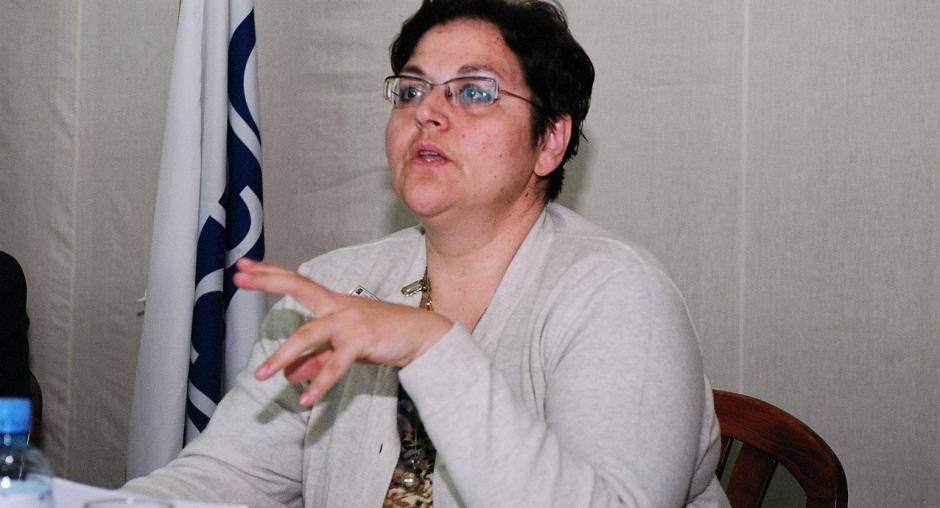Kosovo Mission supports "historic" meeting on oversight of government
The gathering, which was held in Prishtine/Pristina on 9-11 June, was supported by the OSCE Mission in Kosovo and the Stability Pact for South-Eastern Europe.
It was the first-ever meeting of parliamentary delegations from Albania, Bosnia and Herzegovina (and its two entities: the Federation of Bosnia and Herzegovina and the Republika Srpska), Bulgaria, Croatia, the former Yugoslav Republic of Macedonia, Romania, Serbia, the State Union of Serbia and Montenegro, Slovenia and Vojvodina.
Describing the meeting as a "historic event", the President of the Assembly of Kosovo, Professor Nexhat Daci, said that it was an honour for him to welcome his parliamentary colleagues from all over South-Eastern Europe.
Although the Montenegrin delegation could not attend due to an important parliamentary session, the others welcomed the opportunity to meet their local counterparts, discuss common problems and familiarize themselves with developments in Kosovo.
Breaking through the isolation
The Assembly of Kosovo has often been left out of regional parliamentary initiatives, but the Stability Pact's concept of parliamentary diplomacy is set to change that by encouraging meetings at various levels between all South-East European parliaments.
"The Pristina meeting was aimed at breaking through the isolation which Kosovo is partly still being faced with in the region," explained Petra Blaess of the Pact's parliamentary task force.
The gathering also enabled the participants to share experiences on the challenges they faced in developing mechanisms to effectively monitor the work of governments and to develop better relations between parliaments and governments.
"Members of the executive often tend to forget that the parliaments, and not the governments, are the highest institutions in a democratic society," said Romanian representative and former Foreign Minister Adrian Severin.
"Whereas governments are accountable to their parliaments, the members of parliaments are directly accountable to the citizens," added Severin, who was also President of the OSCE Parliamentary Assembly from 2000 to 2002.
The participants called for more parliamentary debates on key social issues, as well as plenary sessions where ministers would explain their policies and report on how laws and parliamentary recommendations are being implemented.
Oversight of finance and security
Effective oversight of government work, free from the influence of party politics, is especially crucial in the areas of finance and security.
In the light of the fact that a Kosovo Ministry of Interior is currently being set up and the Assembly is yet to organise a mid-year financial spending debate, these two issues are top priorities on Kosovo's agenda.
"At a time when preparations for the creation of a Ministry of Interior are under way, the early development of effective parliamentary oversight is a basic condition for the creation of a police at the service of all citizens," noted Ambassador Werner Wnendt, Head of the OSCE Mission in Kosovo.
At the request of the participants, the OSCE Mission and the Stability Pact agreed to facilitate meetings of technical working groups to address the issue of effective oversight over budgets and security, as well as the further development of regional parliamentary networks.
Debate on interactive case study
There were heated discussions over an interactive case study in which a Minister of Finance made changes to a budget without consulting his colleagues in government or parliament, raising the question of loyalty to one's party versus the responsibilities of being a member of parliament.
"Can we, as members of parliament, reach a consensus on the fact that the Minister of Finance should resign?" was one of the questions debated.
After the discussions were over, one of the participants from the Kosovo Assembly, Hydayet Hyseni, observed that all members of parliament, wherever they were, faced similar problems.
"For me, it was very important to discover that most of the problems and challenges we are facing are similar to those in other parliaments in the region," he said.
The next stage in the dialogue will be a series of follow-up meetings planned for September. The participants have also agreed to organize a follow-up conference in 2006, to be hosted by one of participating parliaments.

